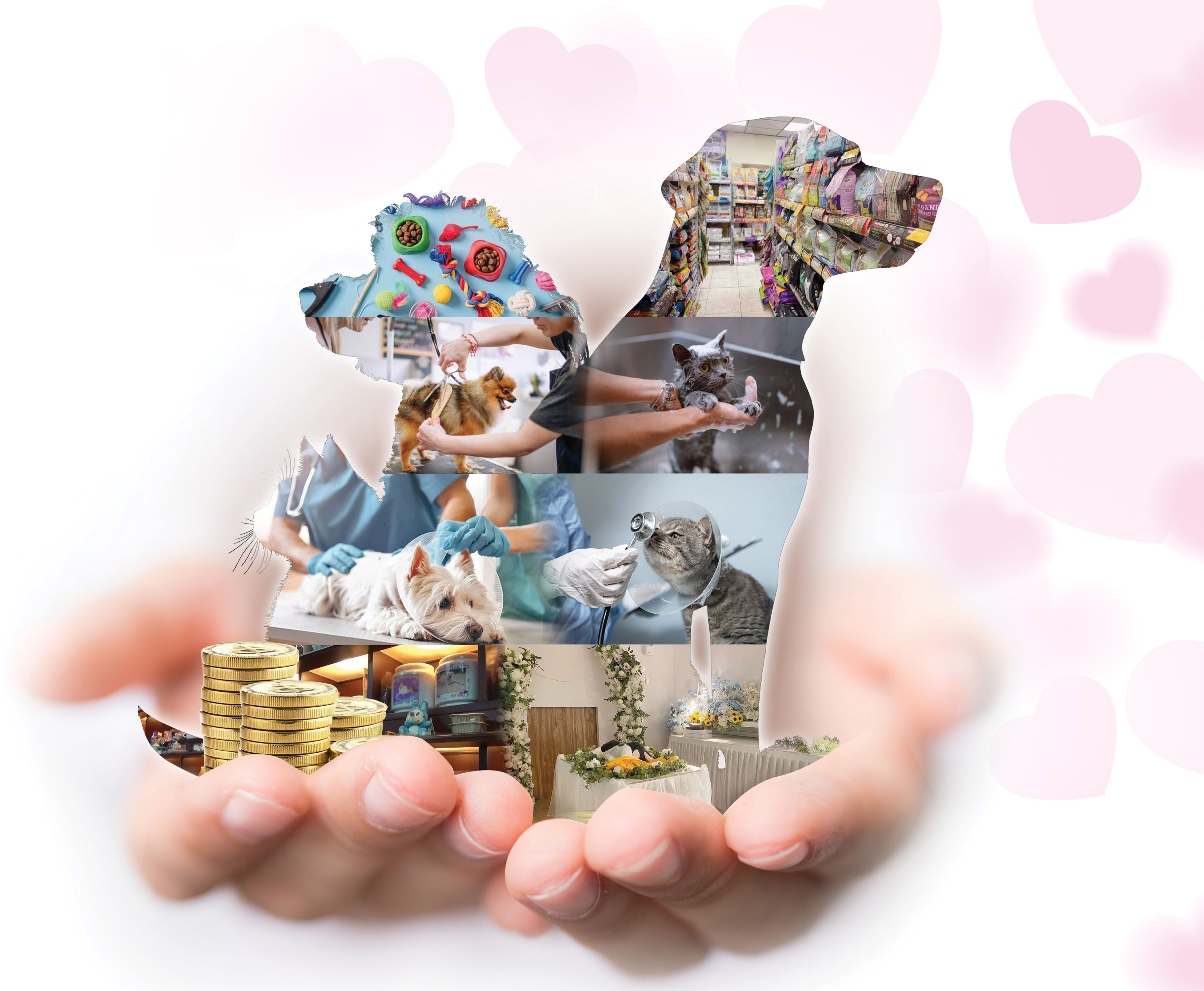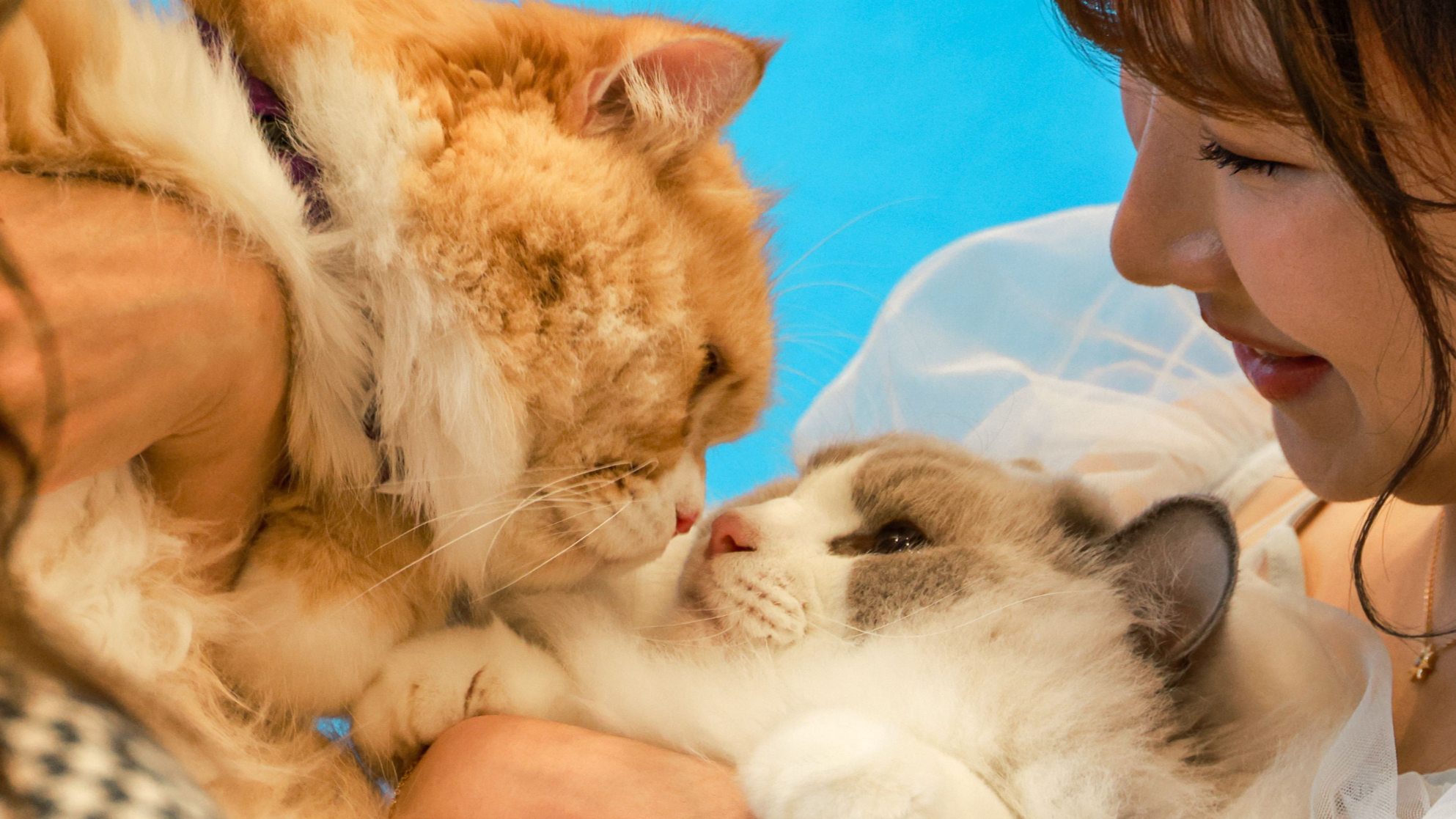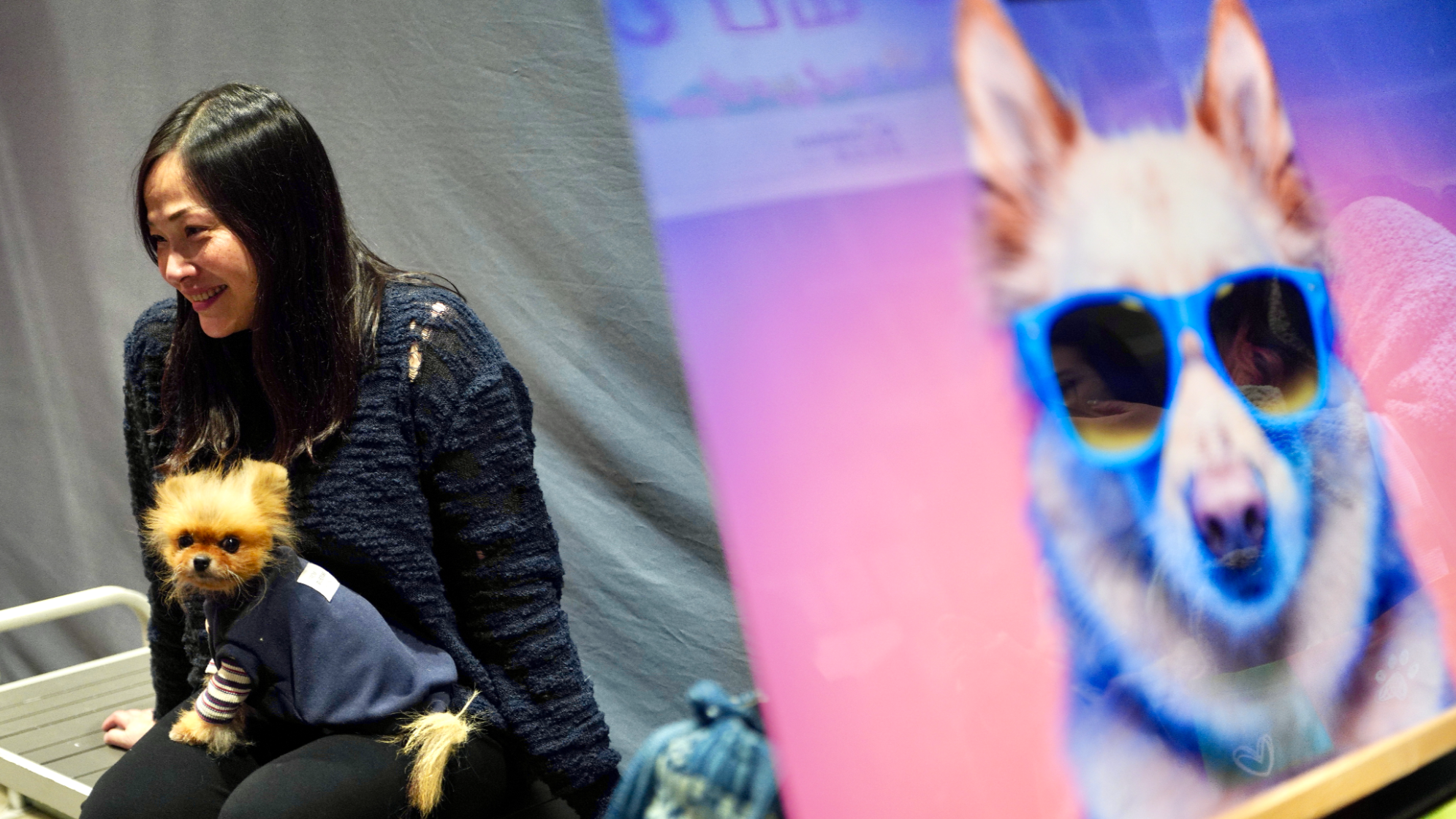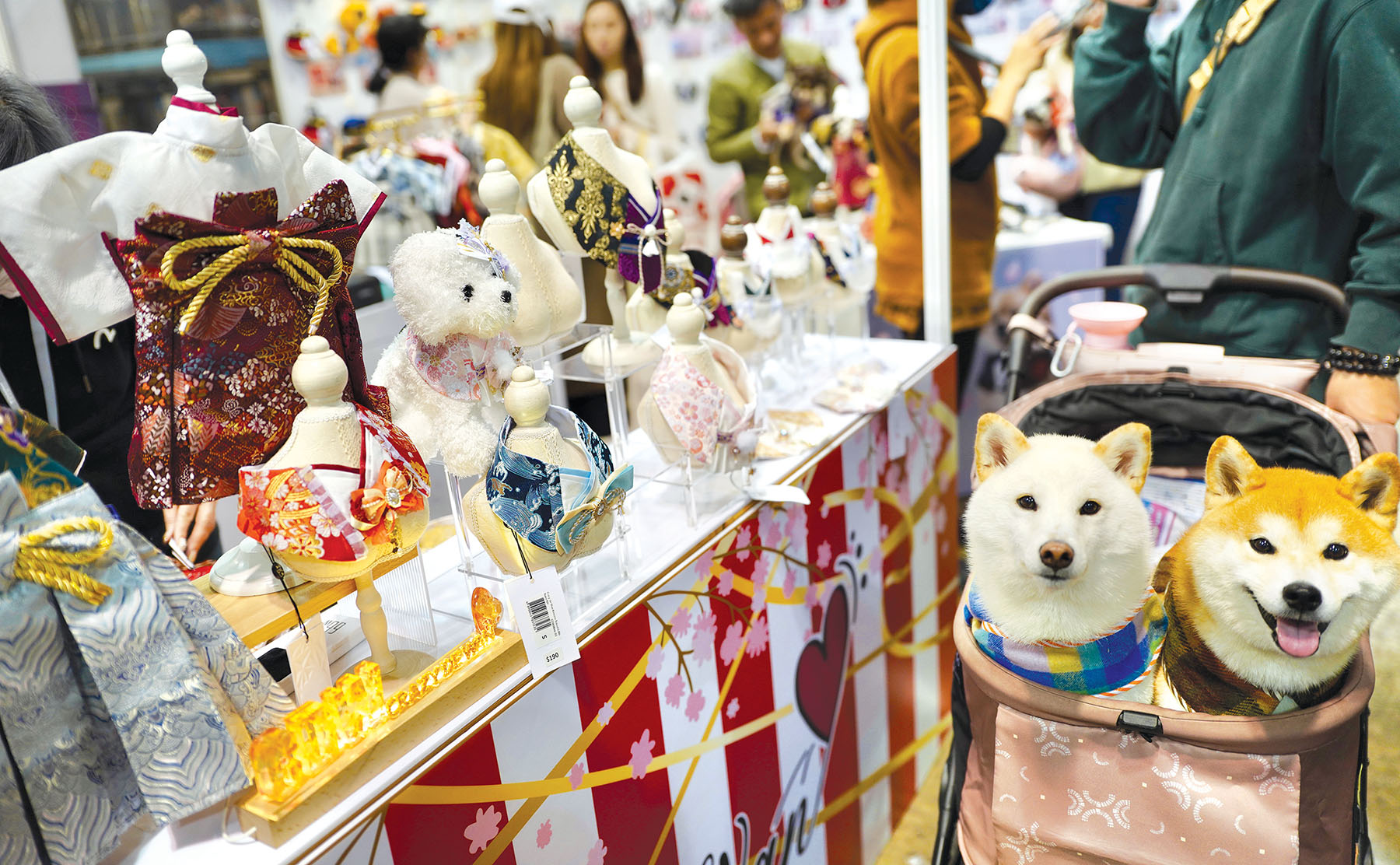Hong Kong’s pet industry is set to scale new heights as the number of pet owners continues to grow. Stacy Shi reports that pet insurance providers and veterinary clinics are among the biggest beneficiaries, and could inject new life into the city’s economy.

Beebee, a poodle of three years old, has already had a close call that could have rewritten her story.
Owner Kennis signed Beebee up for pet insurance when her furry companion was six months old.
Her foresight was put to the test sooner than expected. Less than two months after the policy went into effect, Beebee’s piercing yelp shattered an evening’s calm in Kennis’ living room. Before she had time to realize what was happening, the petite poodle had fallen off the sofa with its left foreleg dangling like a broken twig, bent at 90 degrees.
“We couldn’t find out what actually occurred. There were no surveillance cameras,” she recalls. “That scream … I’ll never unhear it. How could something so small make such a loud sound?”
What followed next was a blur of panic, high veterinary bills and quiet relief. OneDegree — a Hong Kong-based insurer — covered more than HK$18,000 ($2,293) of the surgery costs under the policy signed for Beebee, taking care of 70 percent of the fees.
READ MORE: Pet-friendly light rail trial extended in Hong Kong
Beebee’s case is far from unique. As Hong Kong’s pet insurance market climbs, experiences like Kennis’ have revealed a shifting landscape in which pets aren’t just companions to their owners, but insured family members.
OneDegree, licensed by the Hong Kong Insurance Authority in 2020 and which launched its first product, Pawfect Care, the same year, is the city’s first dedicated medical insurance company for cats and dogs. It started an innovative pet insurance policy in 2022, offering up to 90 percent reimbursements with no claim ceiling for a specific type of coverage — a first in the market — subject only to a single annual limit.
The company saw record-breaking insurance enrollment numbers for companion animals at the Hong Kong Pet Show in February, with premiums sold at the event soaring by 83 percent year-on-year. Cats made up 66 percent of insured pets, while dogs accounted for the remainder. By age group, policyholders aged 30-39 are the largest group (40 percent), followed by those aged 18-30 (28 percent).
Last year, the insurance company posted revenues of HK$240 million across all categories of its products — up 27-fold since the company’s establishment. Its customer pool also rose significantly — up 17 times compared with 2020.

Shift in mindset
As Hong Kong’s pet culture evolves, the insurer is adapting to owners’ diverse needs by expanding coverage to include turtles and birds.
Besides its insurance products, OneDegree has other offerings. Its PawBook app offers free vet consultations, while a shopping platform sells pet products ranging from beds to smart water dispensers. The company also organizes educational events like pet-care workshops to help owners better tend to their furry companions.
Emily Chow Mei-wah — OneDegree’s deputy chief executive — is confident that the demand for pet insurance will continue to expand in Hong Kong, noting huge potential for growth as the current penetration rate in the city is at just 8-10 percent, compared with 30-40 percent in Western markets like the United Kingdom and Sweden.
The key factors driving the market include the continuous rise in the number of pet owners and soaring medical costs. The insurer’s claim records showed that average annual medical costs for each pet soared to HK$12,735 last year — nearly double the costs of five years ago.
“If you own a pet, it eventually needs medical care, just like humans,” says Chow.
She says buying pet insurance isn’t just about financial planning. It’s about responsible ownership. “Such a mindset reflects societal progress. Pets aren’t toys for our amusement — they’re living beings that deserve proper treatment and care.”
Perhaps, the most visible sign of progress is Hong Kong’s gradual embrace of pet-friendly infrastructure. While pets were once banned from most indoor public spaces, they’re now welcomed on designated subway carriages, selected buses, and at a growing number of malls and cafes.
Chow expects to see 30 percent annual growth in the pet insurance market. OneDegree aims to expand its market reach by addressing consumer concerns and enhancing value-added services. The goal isn’t just policy sales. It’s fostering a culture where protecting pets becomes as instinctive as caring for them.

A booming market
According to the 2018 statistics from the Hong Kong Special Administrative Region government, 241,900 households, or 9.4 percent of all in the city at that time, owned cats or dogs. Statista estimated that the number of household pets in Hong Kong had grown from 1.14 million in 2018 to 1.19 million in 2023. A report from the data intelligence platform projects that the figure will exceed 1.2 million by 2028.
With growing pet ownership, business strategy firm StrategyHelix Group forecasts that the HKSAR’s pet-care market, covering food, accessories and healthcare, will expand from $1.44 billion in 2024 to $2.05 billion by 2030.
Pet insurance represents just one facet of a much larger industry. A February 2024 survey commissioned by OneDegree and conducted by market researcher Ipsos revealed the substantial financial commitment of Hong Kong pet owners to their animal companions. The survey polled 526 cat and dog owners and was based on their average annual general and medical expenses on pets. The survey found that owners, whether enrolled in pet insurance programs or not, could spend up to HK$490,000 over a pet’s estimated lifespan of 14 years.
The highest spending category covered pet food and snacks at 19.4 percent, followed by veterinary care and medication at 17.2 percent. Health checkups and dental care ranked third at 9.8 percent, while pet insurance accounted for 8.7 percent of total expenditures.
An evolving industry
Carl Li Ka-kin, who heads the Hong Kong Pet Trade Association’s government policy affairs, notes that the local pet industry has undergone significant transformation, particularly in consumption patterns.
In the 1980s-90s, local pets were often fed with table scraps, but with the introduction of specialized dry and wet food, pets started to enjoy a healthier diet. “This shift reflects growing awareness among owners that animals, like humans, have specific dietary needs,” says Li.
Recently, premiumization has become a major trend, with pet owners going for high-quality, functional food, such as organic, natural or health-focused formulas designed to support joints, kidneys, and the immune system.
Veterinary care has also shifted from treatment-only to preventive healthcare, with increased demand for supplements like vitamins and joint support products.
Pet grooming standards have also gone up. Owners are willing to pay for luxury grooming services, driving more Hong Kong groomers to obtain international qualifications.
As the pet economy flourishes, challenges remain due to Hong Kong’s relatively small population and area.
Li notes that, with only 7.5 million residents, local pet business competition is fierce, lifting operational costs. High rent and labor expenses push up product prices, making it difficult for local pet brands to compete against global or Chinese mainland players, he adds.
Li believes that differentiation is key to tackling the challenges. Tailored products, such as functional pet food to deal with common health issues, could carve out a niche. Local brands, while enhancing product quality, can also partner with clinics and pet stores for promotions, and leverage social media and influencers for marketing to attract younger pet owners.
Li says that participation in the pet market is not limited to pet-focused specialty companies, since more traditional enterprises have jumped on the bandwagon to seize opportunities in the booming industry.
This is evident in the pet insurance sector, with insurance giants like Prudential and FWD having successfully tapped into this blue ocean by launching dedicated pet insurance products.

Growing with care
To promote the healthy development of the pet economy, experts are calling for stronger policy support to enhance animal welfare and public education on responsible ownership.
Chong Tai-leung, associate professor of economics at the Chinese University of Hong Kong, advocates sustainable growth over aggressive promotion. “This industry deals with living beings,” he says, warning that it shouldn’t be exploited purely for economic gain, while citing examples like illegal breeding and smuggling.
The Hong Kong Society for the Prevention of Cruelty to Animals urges swift implementation of animal welfare law reforms. While acknowledging that local laws have surpassed those in many regions, SPCA Deputy Director Fiona Woodhouse notes that Hong Kong still lags behind some advanced jurisdictions in law enforcement and preventive care related to animals.
In addition to penalties already in place, the city’s animal protection laws could introduce the concept of “duty of care”, providing specifications for basic care required for animals related to their diet and living conditions, she suggests.
ALSO READ: Parroting love
Woodhouse also points out the problem of unregulated commercial use of animals, such as those in pet cafes and entertainment venues, and calls for licensing regimes to ensure proper care for pets.
Kennis takes Beebee almost everywhere. While enjoying their furry friends’ dedicated company, owners like Kennis return the commitment by attending events that concern pets’ needs.
A pet massage workshop, hosted by OneDegree recently, was fully booked as soon as registration opened. It saw pet owners packing the venue to learn the techniques of giving their furry companions a more comfortable life.
Above all, what sets the pet economy apart is its emotional foundation. Products and services for pets should tap into something deeper — the universal desire to care for those we love.
Contact the writer at stacyshi@chinadailyhk.com


